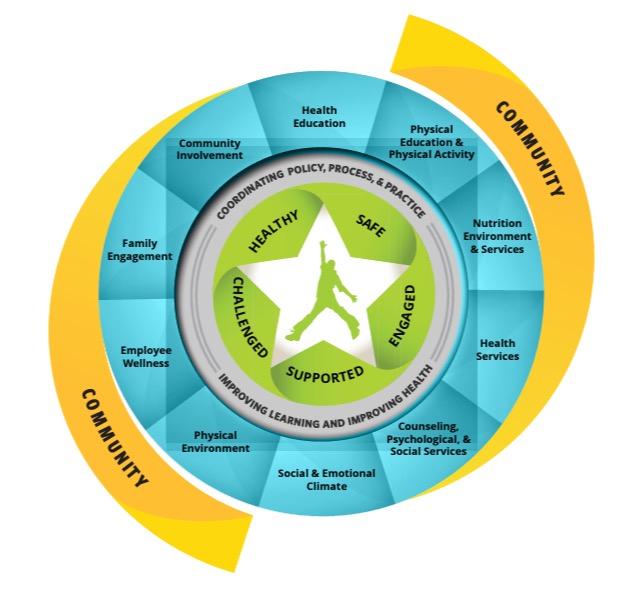BUILDING HEALTHY MILITARY COMMUNITIES TOOLKIT
A RESOURCE FOR THE DEPARTMENT OF DEFENSE HEALTH PROVIDERS AND COMMUNITIES
Schools and Childcare Facility Policies
Schools and Childcare Facilities
The Military Health System acknowledges “the important role military children play in helping…Service members achieve their mission by contributing to the strength of the military family.” There are numerous interventions that address the health and wellness of young and school aged children.
Childcare and Early Education Centers (Ages 0-5)
 Like civilians, many Service members place their children in daycare settings so they can carry out their daily work duties. The environment in these centers impacts the health of their children. Improvements made in these centers can make lasting changes in children’s health.
Like civilians, many Service members place their children in daycare settings so they can carry out their daily work duties. The environment in these centers impacts the health of their children. Improvements made in these centers can make lasting changes in children’s health.
CDC’s Early Care and Education webpage includes tools to help childcare centers learn how to support breastfeeding mothers, increase access to drinking water and healthier beverages, understand the national standards for preventing obesity in child care and early education programs, and take a self-assessment of their facility.
Schools (Ages 6-18)
Schools have direct contact with 95% of U.S. children, where they spend an average of 6-7 hours daily for approximately 13 years. This amount of contact makes schools a significant part of the military family’s life. Schools are an ideal place to instill and support youth with opportunities to improve their dietary and physical activity behaviors with the added benefit of increasing the number of youths who are eligible for military recruitment after high school.
Schools can apply the Whole School, Whole Community, Whole Child (WSCC) model to guide their approach to maintaining and improving the health of their students. The WSCC model highlights how a child’s emotional, physical, and academic development requires multiple components, including:
- Physical education and physical activity
- Nutrition environment and services
- School health services to support physical, psychological, and emotional health
- Family and community engagement
What you can do:
- Encourage your community partners, including Parent Teacher Associations, to promote the Whole School, Whole Community, Whole Child (WSCC) model to local school boards and School Health Teams.
- Use CDC’s School Health Index to improve health policies and programs.
- Launch a Safe Routes to School program in a community with a high density of Service members and encourage them to use it.
- Encourage community organizations to share these tools with the schools they work with and see them in action in the Virtual Healthy School.
- Ask CHIP planning committees to:
- Include implementation of the WSCC model in their health improvement plan.
- Pursue any of the activities listed on CDC’s Early Care and Education resource page.
- Ask SHIP planning committees to adopt and support the State-Level Obesity Prevention Efforts Targeting the Early Care and Education Settings.

